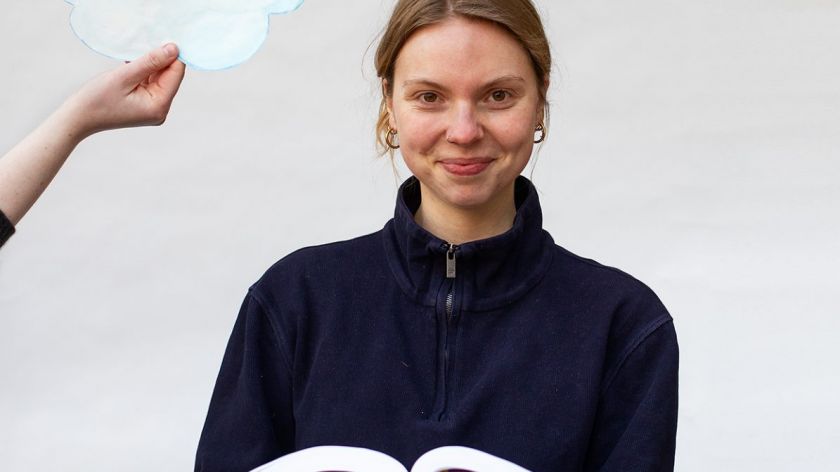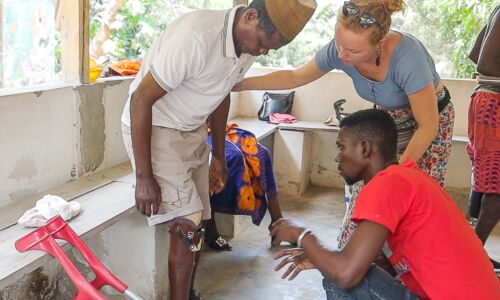On Wittgenstein and being witty
-
 Jara Majerus, photo: Dick van Aalst.
Jara Majerus, photo: Dick van Aalst.
Life can get quite complicated - and sometimes, you need help from the world's greatest philosophers to figure it out. In her new blog, Jara Majerus looks at life through the philosophical monocle, employing the help of some of history's brightest thinkers. Today: Wittgenstein and why Jara sees the world in four different ways.
I am a wittier version of myself in Austrian-German, which is a shame because you are reading this column in English. But that is alright because while foreign languages cost me my funny side, they let me see the world in different ways. Let me explain.
Since I moved to the Netherlands, I have spent a fair amount of time thinking about languages. I speak native Austrian-German, English, Dutch, and some French, and I have the impression that each language comes with its own personality. When I speak English, I am more polite. When I speak Dutch, I feel blunter. In my native tongue, I feel most ‘like my true self’ (whoever that might be, but that is a topic for another column) – and I feel smarter. It’s like I have more knowledge.
Most certainly, many international students are familiar with this phenomenon and know that not finding the right words is frustrating. It can easily make one feel inferior to one’s conversation partner. A famous philosopher, who might have shared this struggle, was Ludwig Wittgenstein, an Austrian-born philosopher who spent most of his life in England. He wrote: ‘The limits of my language mean the limits of my world.’
‘If you are missing words in your repertoire, there are gaps in your worldview’
Now, Wittgenstein’s quote can be read in multiple ways. In my opinion, on the one hand, it suggests that those who cannot speak eloquently, are forced to be narrow-minded. If you are missing words in your repertoire, then there are certain gaps in your worldview. For instance, if I cannot name a giraffe because I do not know the word, the giraffe does not exist in my world as such. This interpretation would tie into the feeling of inferiority and other negative emotions that arise when struggling to express oneself.
But before we collectively feel bad for not being native speakers in all languages, and not knowing all the words in existence, maybe we should change our perspective. Because, on the other hand, if language shapes the way we view the world, as is at least to some degree suggested by Wittgenstein, then something fantastic happens when we learn a new language: we learn a new way of viewing the world. So, every new word, whether basic or academic, is like a little trophy that makes our world richer. So, I might not always be able to show my wittiest Austrian version to everyone – but at least I see the world in four ways.
Read Jara Majerus's blogs here



paul voestermans wrote on 18 mei 2023 at 18:05
I wished it was that simple.
ApunTheGreat wrote on 24 mei 2023 at 15:11
Spot on!
Jessy wrote on 18 mei 2023 at 20:20
Mir und meinem Freund gehts genau so 🙂 Unsere Tage sind ein bunter Mix zwischen Italienisch, Deutsch und hin und wieder Englisch..und genau das was du schreibst, bringt unsere Gedanken zum Ausdruck!
Hoffe dir gefällt das Leben in den Niederlanden!
Liebe Grüße